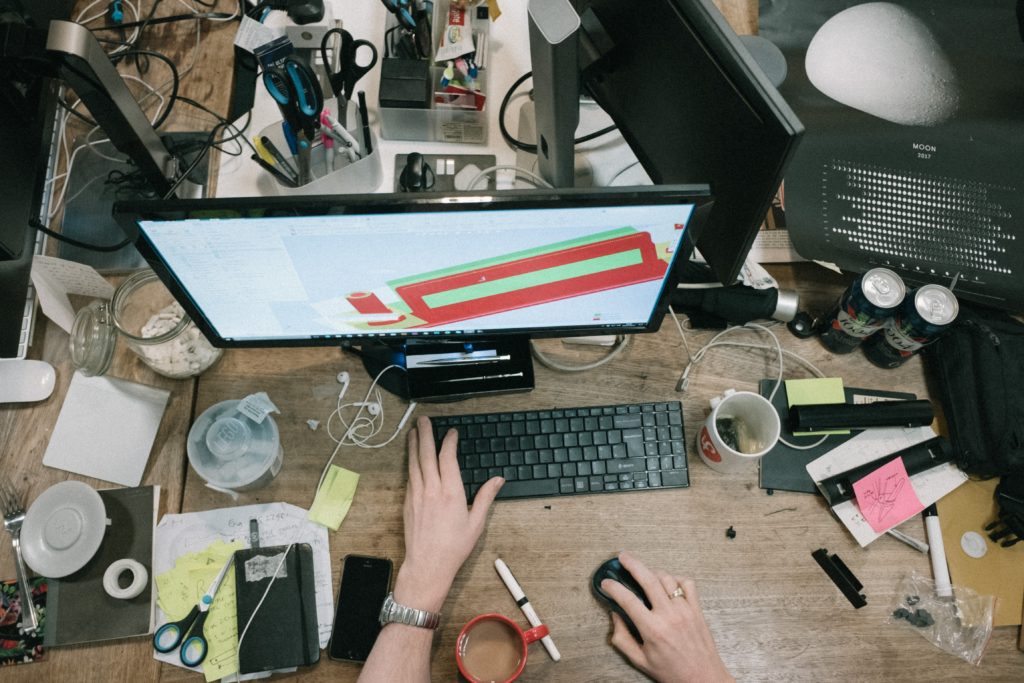When you get home at the end of the day do you feel like you accomplished what you WANTED to do or what you NEEDED to do? There’s a difference between the two and it’s the difference between being busy or being productive. Here are some bullet point differences:
- Being busy is knocking out a lot of tasks; productivity is moving strategic work and goals forward.
- Being busy is reactive to the demands of your time; being productive is being proactive.
- Being busy leaves you exhausted and frustrated; being productive leaves you energized and fulfilled.
Essentially, being busy is allowing the necessary or procrastinated tasks you have dominate your time and your calendar. It’s exhausting and demotivating to move from one urgent task to another and not feel you are in control of your time. We all are going to have days like that and we all have tasks which we have to do that take away from more focused time on important projects. The majority of people in my experience continue to come in each day and let the demands of the day dictate their time over trying to exert control and gain focus time on important things. No one can do their best work moving quickly from one urgent thing to another which compounds the dissatisfaction and lack of fulfillment one will feel. The good news is, with some proactive steps, you can add some time into your day to increase your focus on the most important things you want and need to be working on. Here are a few tips:
No one can do their best work moving quickly from one urgent thing to another which compounds the dissatisfaction and lack of fulfillment one will feel.
Take ownership of your day. How does one do this? By proactively calendaring their schedule. To get started you might have to take a couple of hours of your off time but the payoff is worth it. The goal is to get ahead of your calendar by blocking off time for important tasks. Don’t count on your to-do list in the heat of the day to guide you because it will wilt under the urgency of other tasks. Instead take the important parts of your task list and work assignments and calendar small blocks of time to work on them without interruption. Build your schedule so that your calendar guides your day and reflects your priorities and then as best you can protect these blocks of time for the work you have assigned to them.
Turn off email. That’s right, turn it off. Also turn off any pop-up notifications that will distract you when email is off or minimized. What pops up in your inbox is often other people’s emergencies that you will be tempted to get sucked into. Calendar a couple of blocks a day to turn on email and work on in these block of time only and you will find you are much more productive in managing your inbox.
Improve your email skills. Don’t send email to multiple people that will start long threads if you can avoid it. Your time is better spent if you remember email is for communication, not decision-making. It’s easy to type up a question and send it but most often a quick face to face will get you to an answer more quickly and with more clarity than email. Also seek to be very specific in your email requests as to what you are asking to cut down follow up emails. A few simple practices like this will cut your email load and allow time for other tasks you would rather be doing.
It takes some work to get ahead and stay ahead of this but it is worth it.
Review your calendar weekly. Take the time to look out over the next couple of weeks and make sure that your calendar is reflecting the priorities you want to be focusing upon. Again, remember, the time for you to focus on these won’t magically happen when you want them to happen. You must look for the time to block off to match your priorities.
It takes some work to get ahead and stay ahead of this but it is worth it. You will find yourself more energized and excited about what the day holds for you when the work of the day matches up to the important tasks. That will inevitably lead to more productivity and a great feeling of satisfaction about your work.
